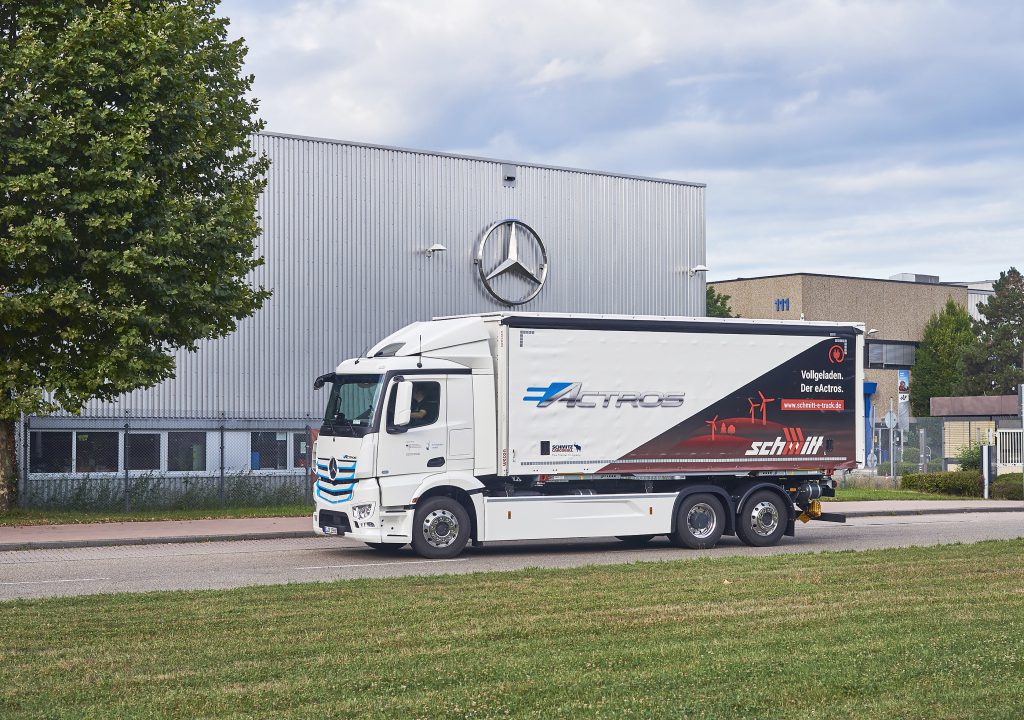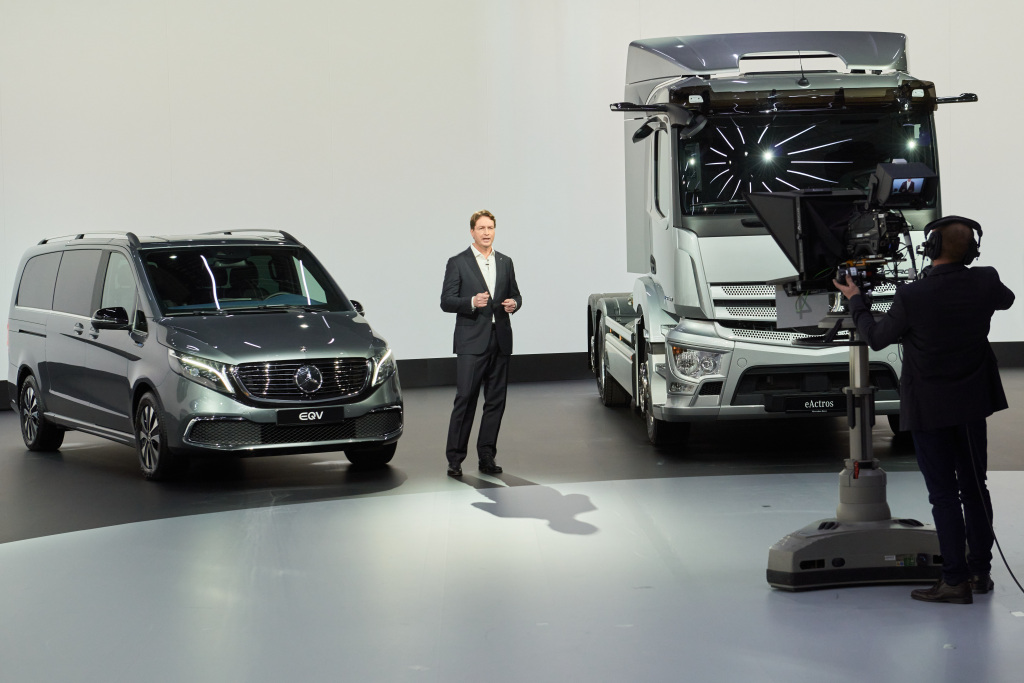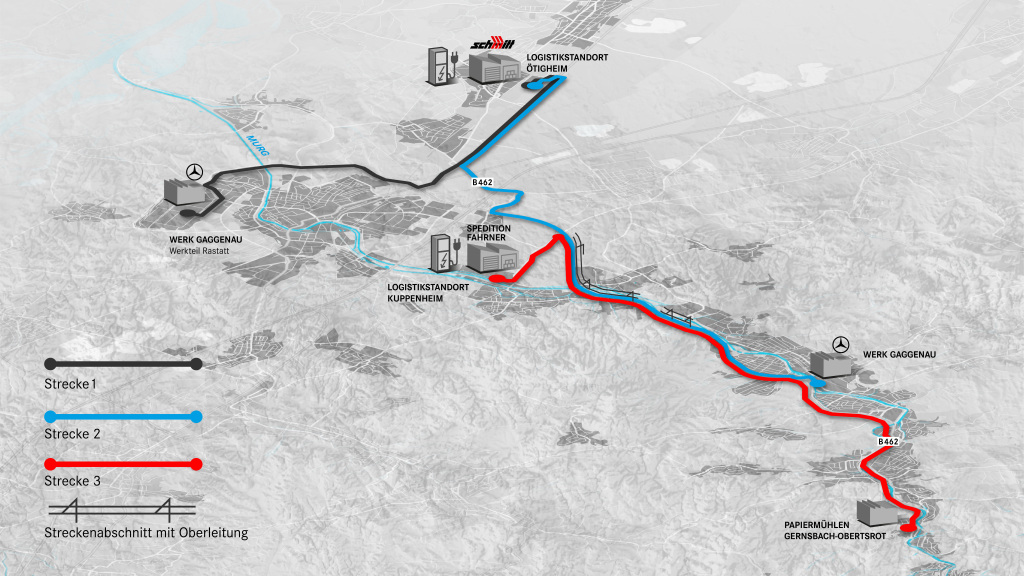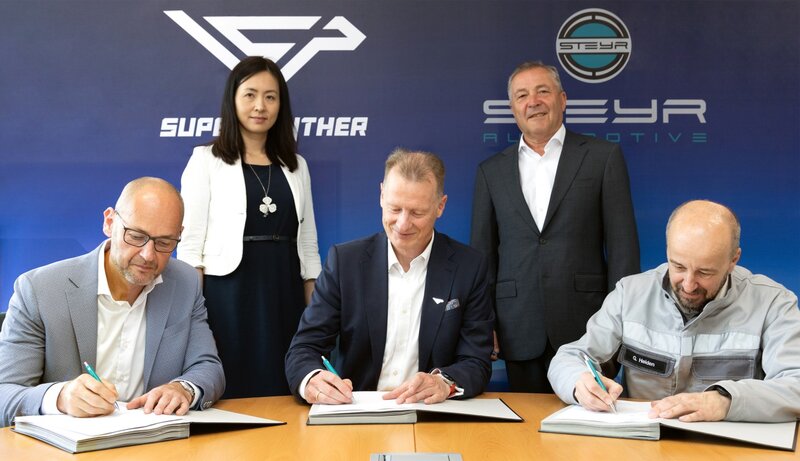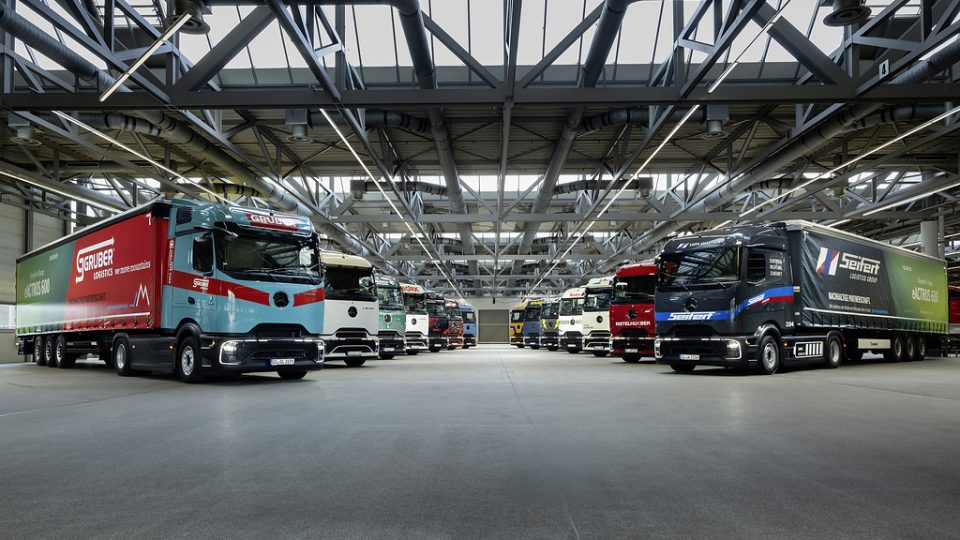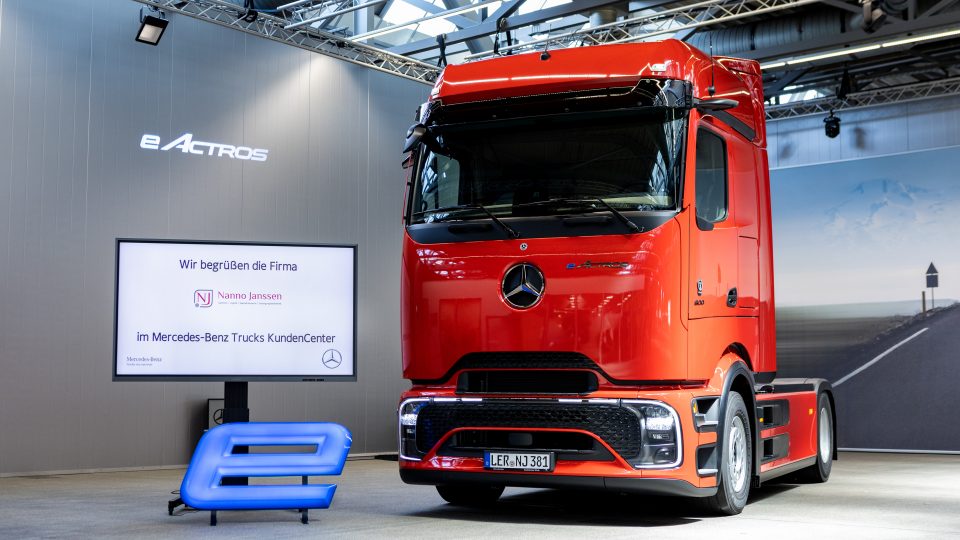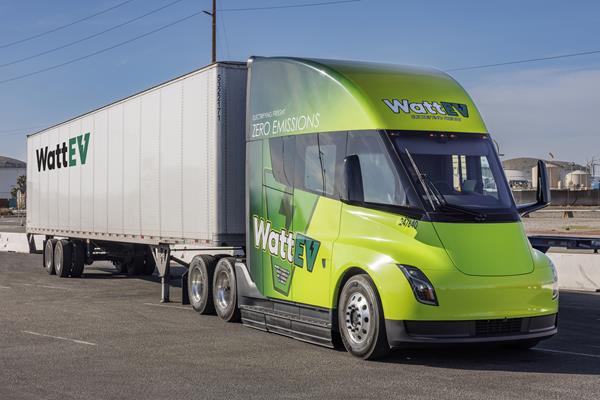Electric truck or catenary truck? Mercedes-Benz chooses battery trucks
A Mercedes Benz electric truck, eActros has travelled a total of around 50,000 kilometres tested by Logistik Schmitt. Result: an electric truck can perform as well as a diesel truck. And Mercedes won't invest in electric highways and catenary trucks
Electric truck or catenary truck? Not a simple question. Since July 2019, a 25-tonne purely battery electric truck Mercedes-Benz eActros has been tested in the Northern Black Forest, running for the Logistik Schmitt company. The eActros has travelled a total of around 50,000 kilometres to date, carrying more than 100,000 load units on around 5,000 trips. It has transported around 30,000 tonnes of freight. The eActros has proven that a battery electric truck can perform the same tasks as a conventional diesel vehicle. A subsequent concept comparison with the eWayBW catenary project will also form part of the multi-year test of the heavy-duty electric truck in the Murgtal region near Rastatt and Gaggenau.
Daimler choses electric trucks over catenary trucks
Since 2018, prototypes of the eActros have been successfully in operation with various additional customers. Series production of the eActros is planned to begin at the Wörth plant in 2021. As a result of the positive experience, Logistik Schmitt has, since January 2021, also been using the eActros on a demanding new route along the B462 main road, which largely corresponds to the planned eWayBW catenary route. Because the eActros is powered solely by batteries, it can very flexibly accommodate route changes at short notice. Between 250 and 300 kilometres can now be covered each day — over 100 kilometres more than was previously the case. While the eActros has generally transported a load weight of approximately four tonnes on the previous route, it usually transports a far heavier load on the new one. The operation of the eActros on the new route represents an initial step towards the concept comparison with eWayBW.
Mercedes-Benz Trucks plans to hand over the enhanced, near-series prototype of the eActros to Logistik Schmitt this summer 2021. The positive result of the eActros tests on the road reinforced the Daimler call not to invest to develop catenary trucks. As a globally operating manufacturer, Daimler Trucks works on future-oriented solutions that can be quickly implemented worldwide. The company does not consider catenary systems to be such a solution. Daimler Trucks’ all-electric vehicles – using either battery-electric drive systems or hydrogen-based fuel-cells – are a flexible concept, whose development is making rapid progress. Moreover, it will be able to completely decarbonize road freight traffic.
Batteries and hydrogen-based fuel-cells cover every customer mission accomplished by electric trucks
«We are focusing our development activities on the two all-electric drive technologies that are genuinely locally CO2-neutral: batteries and hydrogen-based fuel-cells», said Dr. Manfred Schuckert, Head of Emissions and Safety, Daimler Commercial Vehicles at External Affairs. «They enable us to meet every one of our customers’ use cases very flexibly with regard to routes. Our field testing of the eActros shows that the battery-electric truck is optimally suited to heavy-duty urban distribution. For use cases that require longer ranges and loads, we plan to include the eActros LongHaul, which is also purely battery-electric, beginning in 2024. For even more demanding applications, we want to add series-produced long-haul trucks equipped with hydrogen-based fuel-cell drive systems to our product range in the second half of this decade». The range of the current eActros prototype is around 200 kilometres per battery charge; the new vehicle will exceed this considerably.
Future road test on the B462: electric battery drive trucks compared against catenary truck
As part of the eWayBW project, freight transport on the B462 road near Rastatt will be electrified to test catenary trucks in operation. The project will also include comparative tests of the purely battery-electric eActros with the catenary trucks and fuel-cell trucks from other manufacturers. The participants want to use drives on similar routes to collect important data and experience for the comparison of the respective vehicle concepts, for example on their suitability for operation. For this comparison, the eActros will perform the same task and drive along exactly the same catenary route as the catenary truck for a specific period of time. This test will help to validate the parallel test drives. During the direct comparison, the eActros, like the eWayBW trucks, will transport rolls of paper along an approximately 18 km route from the paper mills in Gernsbach-Obertsrot to the logistics centre of the Fahrner company in Kuppenheim.



